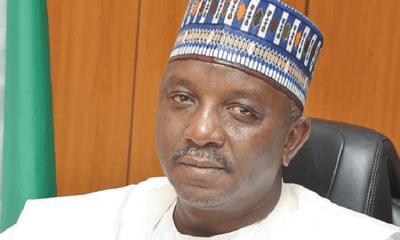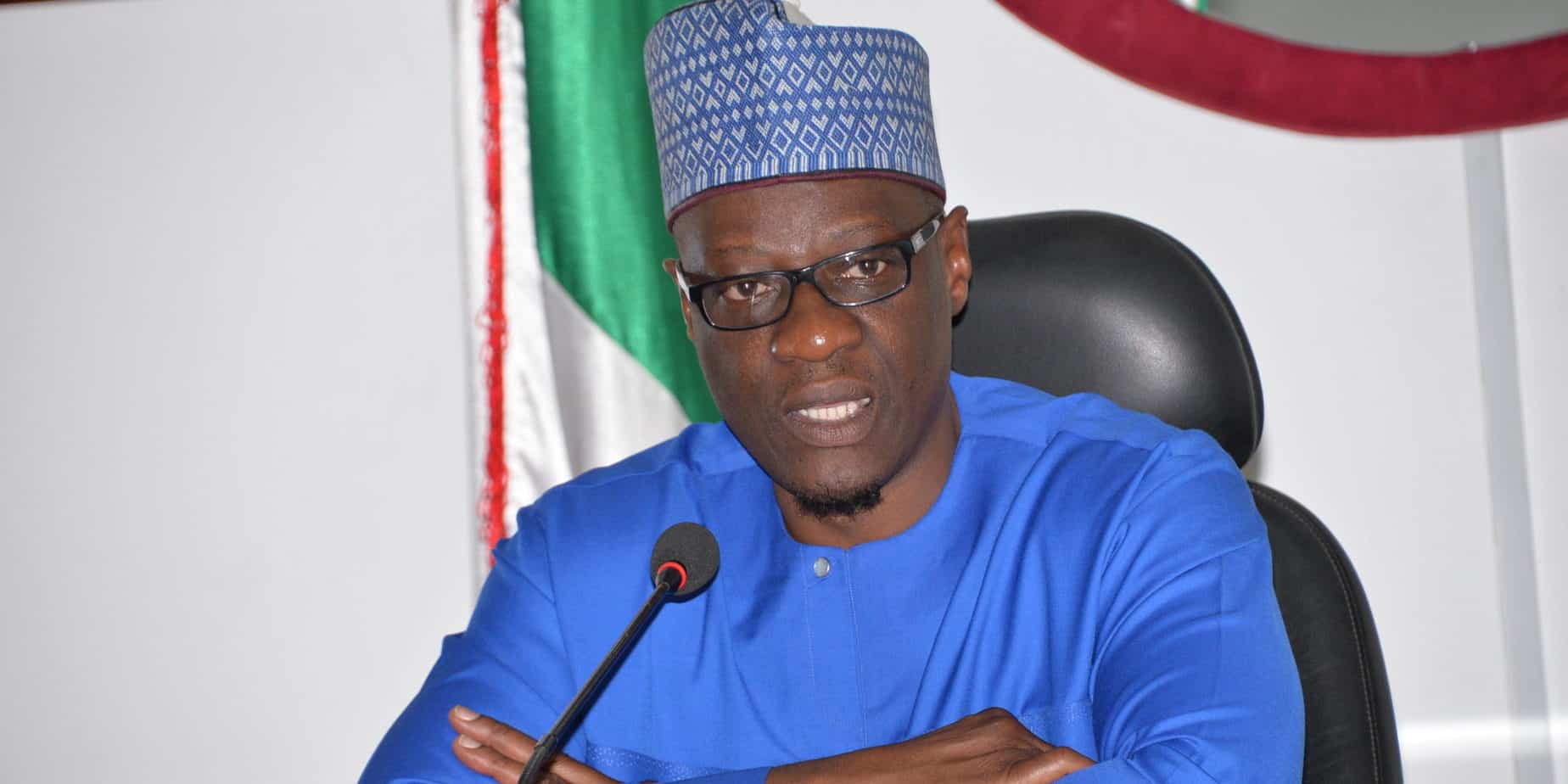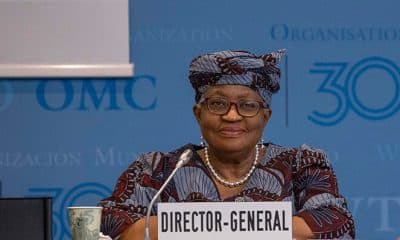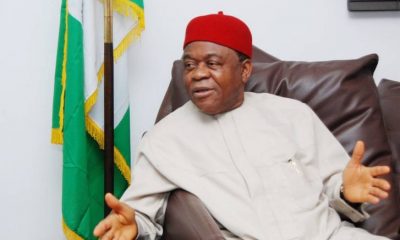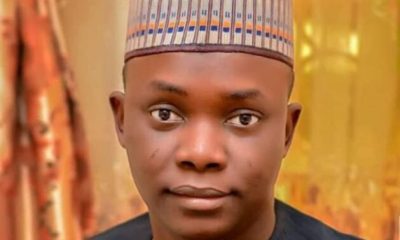Nigeria News
Corruption In Nigeria – A System For All To Fight
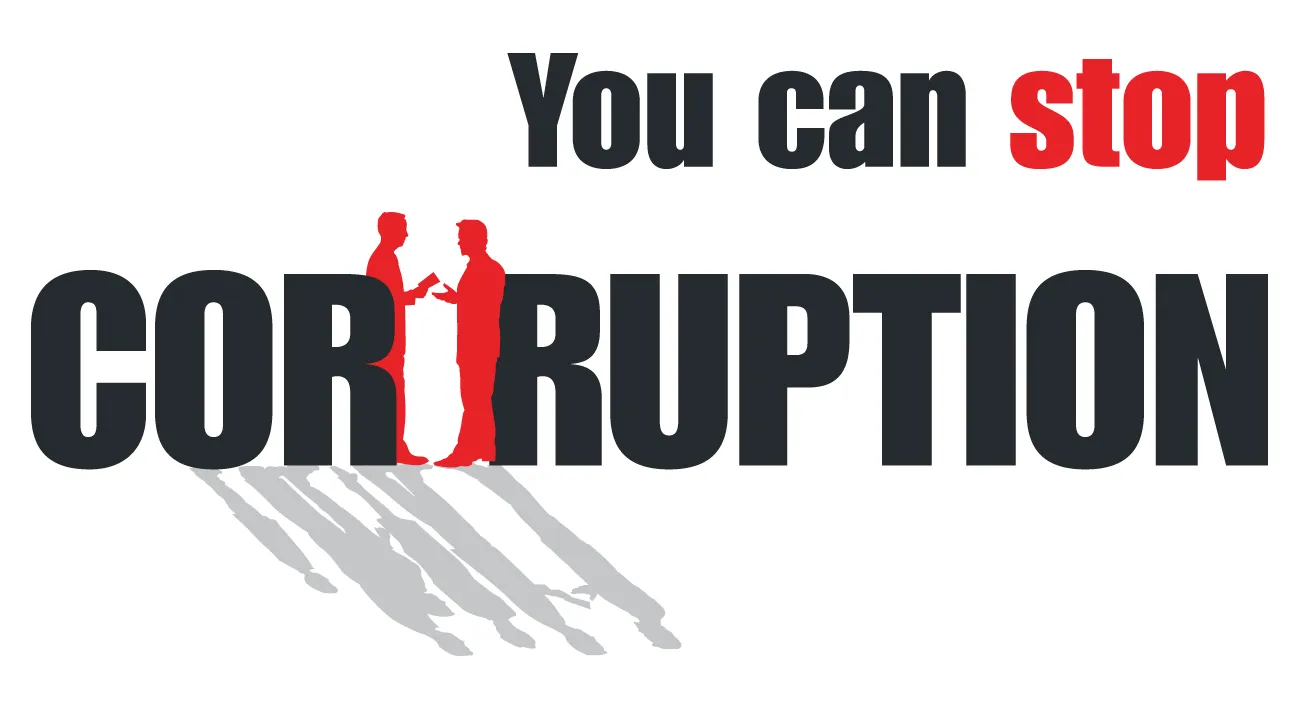
The saying of Nigerian Human Rights Activist and realtor, Segun Awosanya, popularly known as SegaLink, that corruption is systemic and not a person to fight or hate, is something every well-meaning Nigerian should really reflect on.
As defined by scholars, the word corruption simply means the abuse of entrusted power for private gain. The men of understanding elaborate further that where corruption is found, trust escapes, poverty becomes inevitable, and democracy in such areas becomes weak and eventually wears away.
The economic development of a corrupt society is not far from zero; social division and related environmental crises become a norm wherever corruption is made a celebrity.
This is the case with the Nigeria of today. One would be right to say that corruption has been in existence for ages across the world. However, the devil would be smiling right now in his corner, looking at how corrupt people have become in this generation of ours.
Corruption In Government
In 2015, President Muhammadu Buhari, during his election campaign, made the fight against corruption one of his core agenda if given a chance to occupy the nation’s highest political position.
The retired Nigerian Army major general was confident about defeating the notorious terrorist sect, Boko Haram and ending every form of criminality in the country.
Reviving the nation’s failing economy was also part of his campaign promises as of then. Unfortunately, these issues are still major headlines in 2023 as the country look forward to another election.
While the incumbent government may not have failed in totality, it will be good to consider some factors that may have contributed to unfulfilled campaign promises.
Taking corruption as a major concern, you will agree that it has become systemic at every level of government in Nigeria.
Should we talk about fraud from the helm of the authorities, petty bribery, money laundering and daring embezzlement of public funds?
Proven statistics have revealed over time that corruption at the state level gulps the country billions of dollars annually. This is so sad to know, but what can we do?
The government has undoubtedly made several attempts to fight corruption within and without, yet it is a thing we always see and experience.
While the Independent Corrupt Practices and Other Related Offences Commission (ICPC) is holding on to its mandate of going after corrupt persons in the public sector, the Economic and Financial Crimes Commission (EFCC), without argument, is still investigating people in all sectors that may appear to be living above their means.
Despite all these anti-graft agencies, we still swim in corruption. The big question would be, WHAT HAS GONE WRONG?
This question justified the saying of Awosanya, “Corruption is systemic, but many have been brainwashed to see it as a person to fight and hate. Those who alludes to the fight of corruption while preserving the holes in the system are the vilest of rogues.”
Aberrations And Unpreparedness
The same people who made us law in this part of the world are the violators of the same. A thief is manhandled, judged and handed a life sentence, while another bigger thief is celebrated with a series of honours.
From his archives shared with Naija News, Awosanya said, “Speakers of the truth were deemed supporters of corruption and a cult of emotional zombies coalesced on a national scale. Ignorance became fashionable without the apprehension of the future.”
The socio-political activist berated the country’s criminal justice system, which he described as stinking.
“Police finds every reason to rob you, the Prison is a mere warehouse where your family will be required to pay rents for your stay there if they ever hope to see you alive, But I guess most of you may have been conditioned to respond to this with Na today e start? until you are directly victimized by the malaise,” Awosanya noted.
He added: “The Judiciary is inundated with unscrupulous litigants, complicit lawyers (even SANS) procuring judgements and orders by corrupt means.”
Last year, a Nigerian academic economist and professor of economics at the Olabisi Onabanjo University, Sheriffdeen Adewale Tella, said during an interview that “corruption is certainly not a new phenomenon in Nigeria. Rather, it has long been an intrinsic element of Nigerian society affecting virtually all spheres of the West African country.”
In his submission, the academician said anecdotal evidence indicates that corruption is culturally acceptable because members of the family, tribe or ethnic group benefit from an individual’s ill-gotten gains.
Tella reflected on the revolving situation in Nigeria and concluded that the government was unprepared for the magnitude of problems it has to deal with, “and it could not even begin to overcome them — not to mention providing the strong leadership necessary to grow the Nigerian economy.”
Corruption Not About Naira And Kobo
In his submission, Nigerian public affairs analyst, Jide Ojo said that corruption is beyond the common belief of the average citizen.
According to him, corruption is not just about money, not a Naira and kobo, Dollar and Cent thing but an abuse and aberration of any kind. He noted that corruption is found in every sector, among public officeholders and in every workplace.
He noted that people tend to talk more about the corrupt practices of politicians and public officeholders because theirs is seen as mega corruption. Ojo observed that even the low-level people engaged in corrupt practices, but we often talk less about them.
How Do We Deal With Corrupt Practices In Nigeria?
To deal with corruption in Nigeria, the public analyst noted that an ethical revolution is needed. He noted that corruption includes cutting corners for job offers, sex for grades, and offering of something in particular to get an undeserved result.
Spiritual Corruption: Ojo mentioned that corruption had eaten deeply into religious bodies, including churches and mosques. Ojo noted that self-acclaimed spiritual heads give fake prophecies nowadays to get offers. He noted that spiritual corruption involves church workers or mosque attendants stealing from the worship centre’s purse.
Ojo said to deal with corruption entirely, the people must understand the entire concept of corruption and denounce it. According to him, the giver and receiver of corruption must be held accountable to address the issue from its root.
The political analyst noted that the country already has policies, institutions and technological innovations to end corruption but that they must be well-resourced and fully implemented for the nation to reduce corruption significantly.
“How will you hire a staff and fail to pay him for months and expect him not to take advantage of other means available to him?” Ojo asked, stating that things like this must end to tackle corruption from the grassroots.
“You cannot ask people not to be corrupt, yet you deny them of their rights, refuse to pay them their salary and expect them not to exploit opportunities in their various offices to make money for themselves,” he added.
Ojo submitted that traditional institutions must also join in the advocacy for a fight against corruption. The public analyst makes the reference to how China and other foreign countries handle corrupt individuals, sending them to jail to serve punishment for their acts irrespective of their status.
Ojo opined that unless everyone understands the concept of corruption and deals with it, policies and tools established to fight it are well exploited, corruption will be inevitable in the country.

